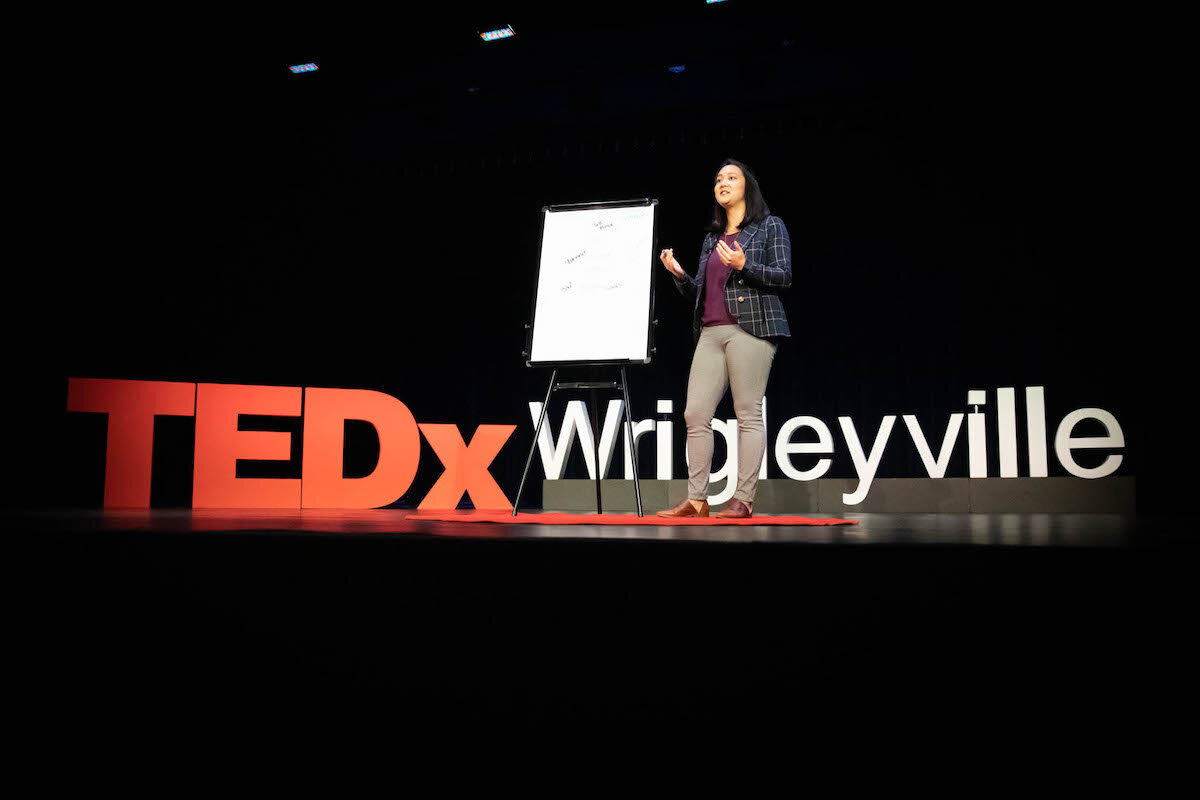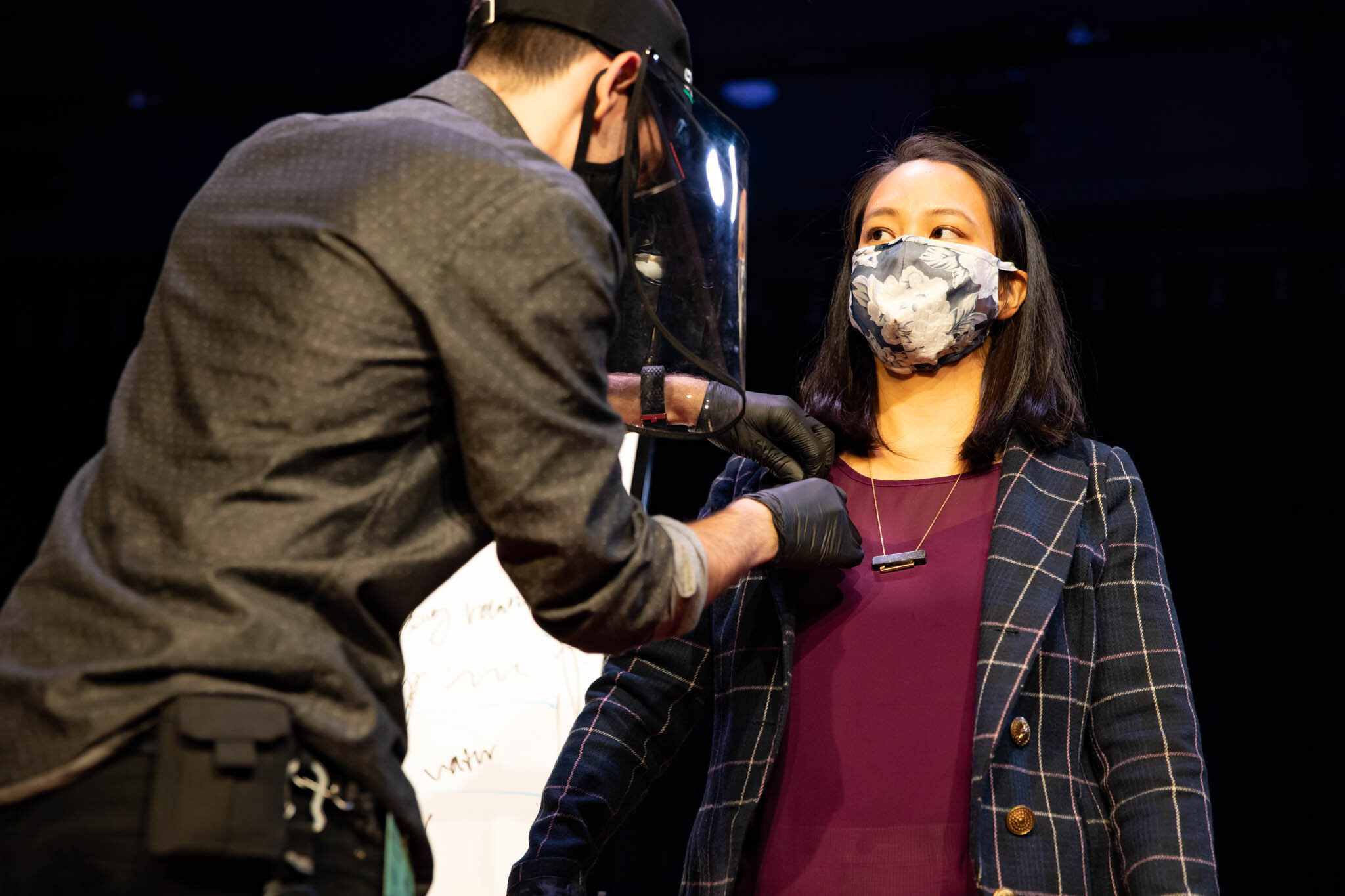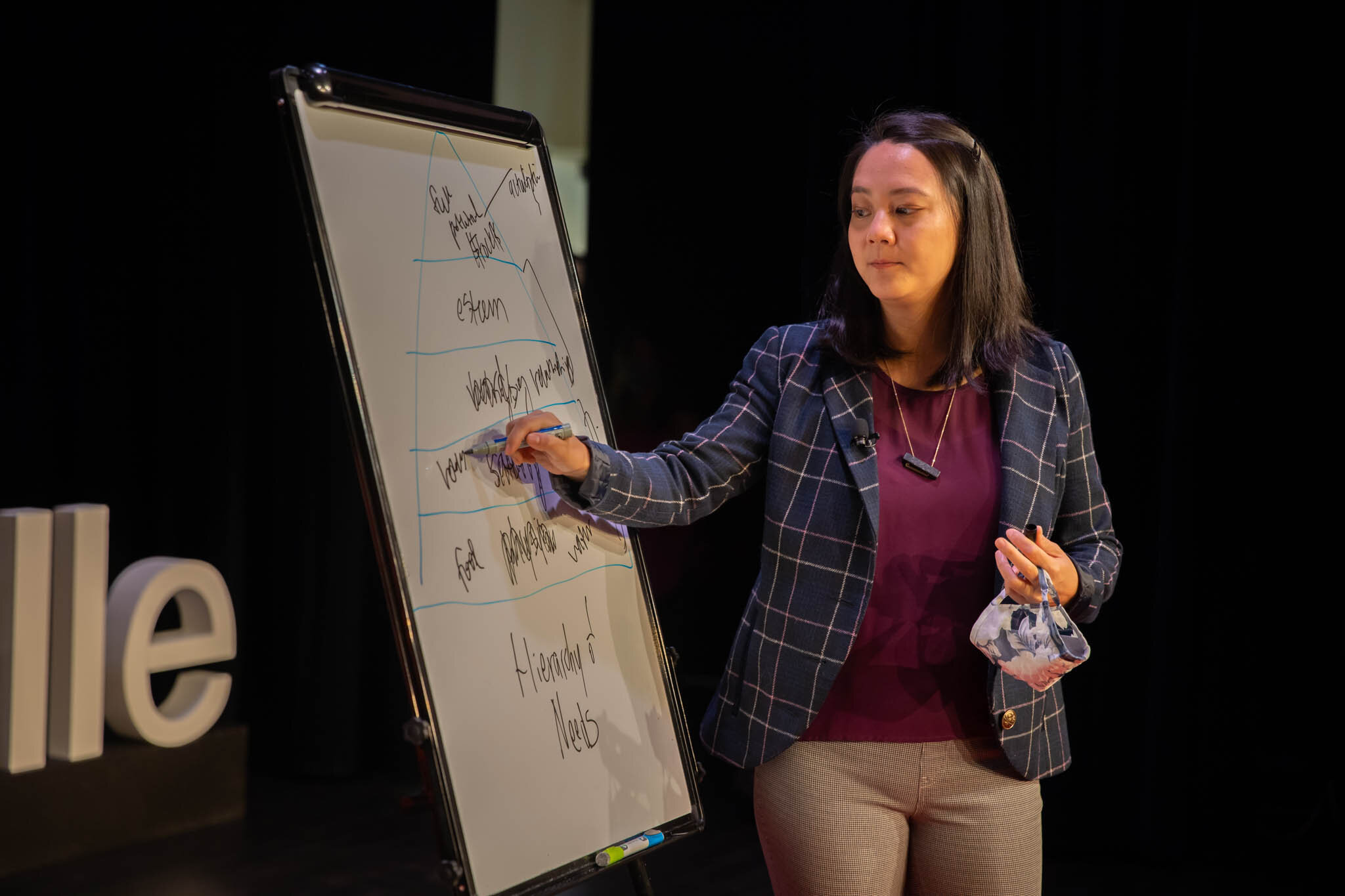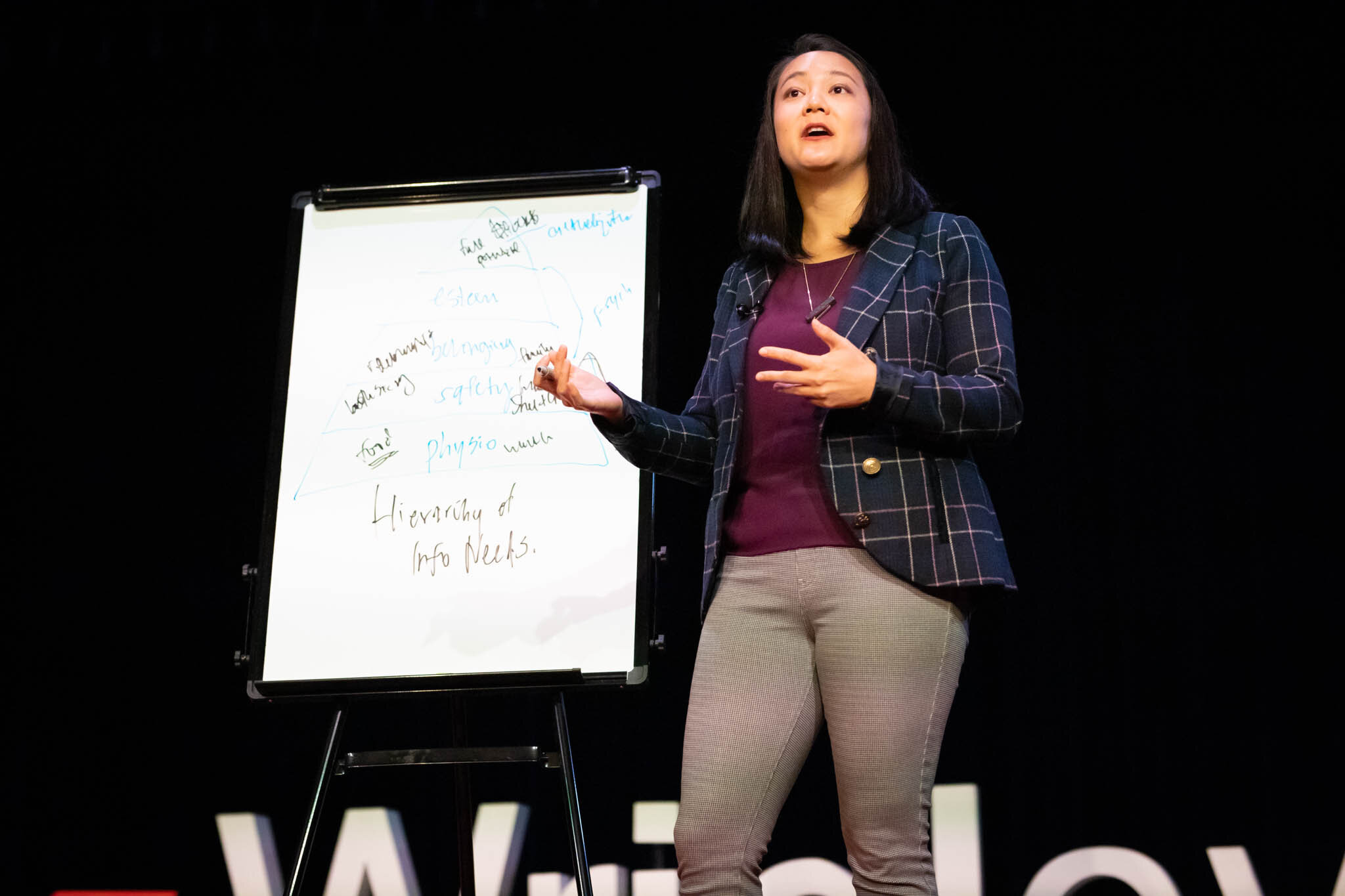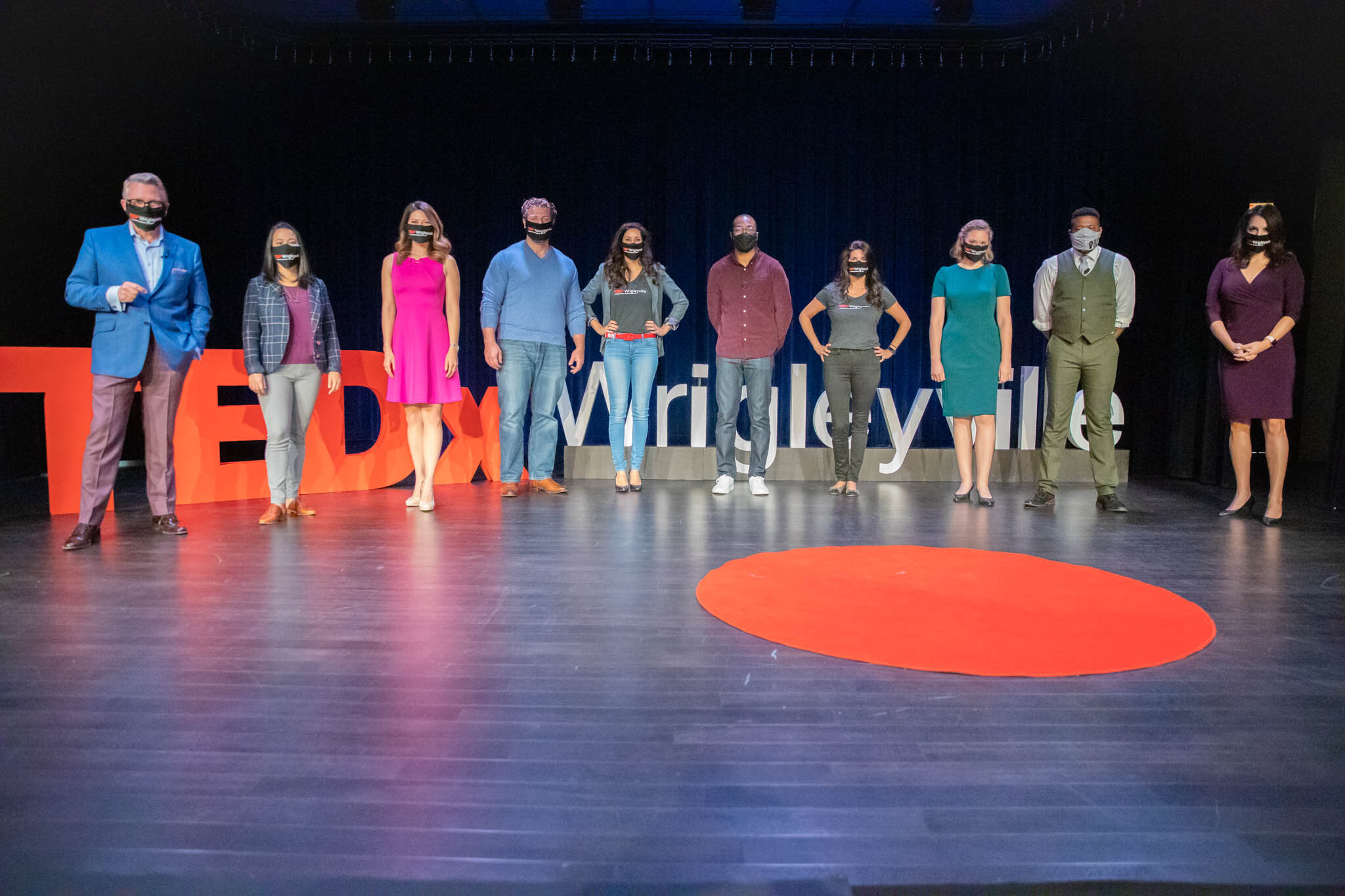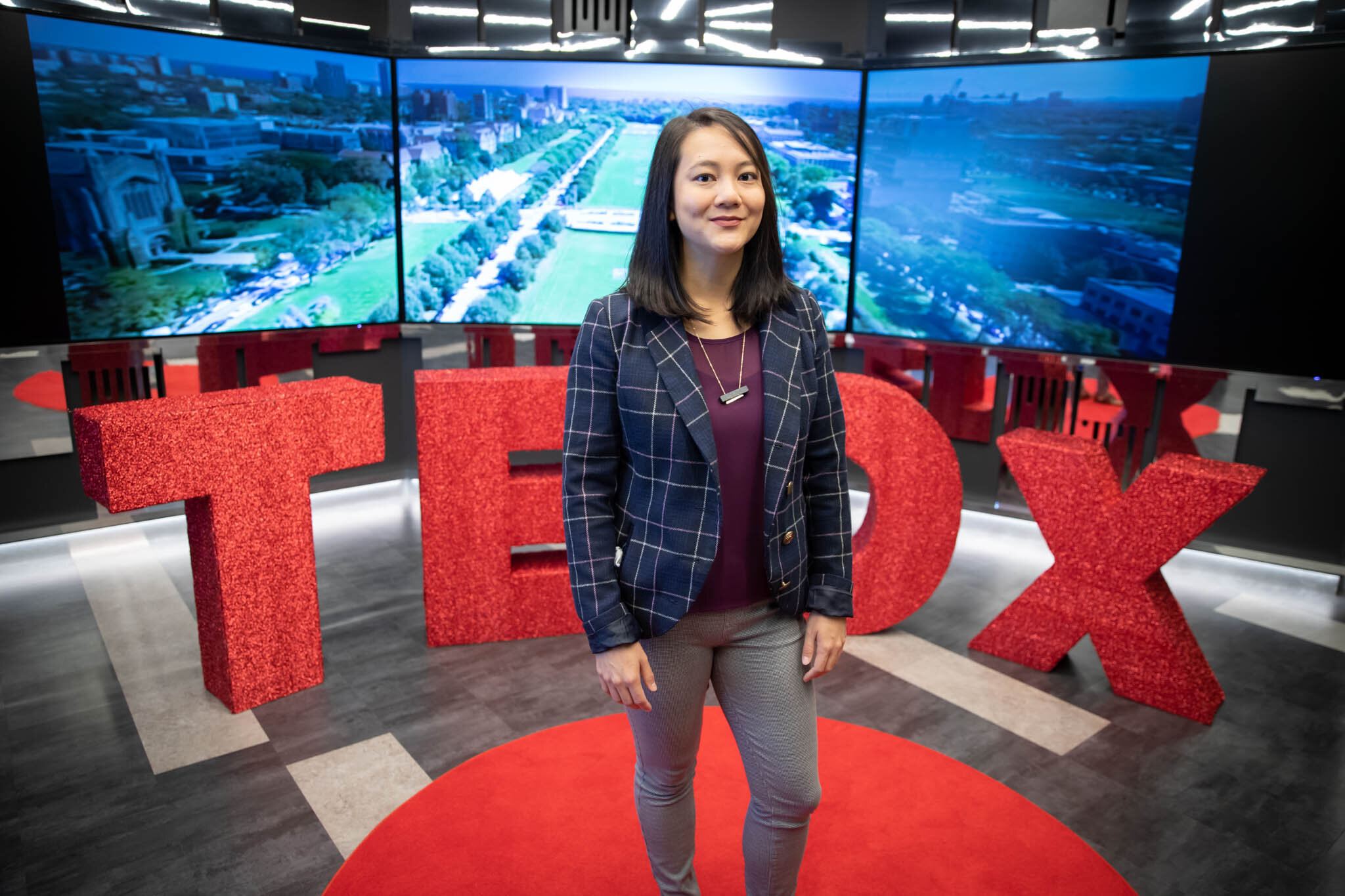This month, City Bureau cofounder and editorial director Bettina Chang delivered a TEDx Wrigleyville talk about building journalism that deserves people’s trust.
The remarks below were delivered on October 4, 2020 at TEDx Wrigleyville. See the full video below.
This is not a talk about Fake News. First of all, “Fake News,” as a term, has grown out of control and now encompasses everything from the original Russian troll farms to actual verified facts that some people don’t want to hear.
But no matter what definition you use, the concept of “fake news” only works because people simply don’t trust the media. And without trusted news sources, it’s easy for people to fall for made-up stories, or for politicians to dismiss cold, hard facts that make them look bad.
So I’d like to talk about a much more important question that gets to the crux of this problem: “How do we make media that deserves people’s trust?”
In 2015 I cofounded City Bureau to answer that question—and to imagine a future of local media where trust is at the core of everything we do.
I’ve spent over a decade as an editor at different media outlets. I worked at trade publications, a national ideas magazine, neighborhood news outlet and a big city glossy. What I learned is a simple truth that a lot of people intuitively understand, but don’t know how to fix.
That is, that right now, the vast majority of journalism is made for, and funded by, people with money. And in the U.S., because of our awful legacy of racism, that means journalism’s target audience is more white, and has more political power, than the rest of the country.
So for all the most pressing issues of the day, like the climate crisis, economic turmoil, pandemic or policing—the people who are most affected, who need news and information the most—are looking for it in the news media that’s not serving them.
It’s not surprising, then, that American media has one of the lowest rates of trust of all institutions in the country—and that’s the fertile ground where disinformation and fake news has taken root.
Maslow shows us a new way forward
So how do we change this? If we’re going to make journalism that deserves trust, we need to reframe the way journalism is made. We need a way to prioritize news that serves people who need it most.
Some of you may be familiar with Maslow and his hierarchy of needs. It’s a concept in psychology that says: people must have their basic needs met before they can dedicate energy and attention to their psychological needs, like belonging and esteem, and eventually reach what Maslow called self-actualization, or fulfillment of your full potential.
So for instance, if I don’t have a roof over my head, it’s hard for me to build intimate relationships. And without healthy relationships, it’s going to be hard for me to reach my full potential.
Like most concepts in psychology this hierarchy isn’t cut and dry—there’s still debate over the details—but if we apply it to journalism we have an incredibly useful tool: a hierarchy of information needs. It gives us a clear way to answer the question, is our work actually making people’s lives better?
Information is power. We know that the right information at the right time can be transformative to someone.
If you need information to get through the day—like finding healthy food for your family, or a safe place to stay the night—that’s critical. If we’re going to create a strong foundation of trust with our audience, we should dedicate most of our energy to making sure these needs are met first.
And sometimes we do. But that’s unfortunately more of the exception than the rule.
Think about disaster reporting and stories on the locations of hurricane shelters, or how to reunite with a lost family member. When a massive disaster affects everyone equally, that’s front page news. But when a disaster affects a smaller group of people, people at the margins of society, there’s not a lot of news or information for them.
At a big-picture level, this focus on a moneyed audience explains why there are dozens of publications and websites that are dedicated to getting rich on the stock market,and on the other hand, there’s very few meant to serve people who are looking for affordable housing.
You can see, then, why news media needs to reprioritize.
Some stories don’t fill any needs at all. And no I’m not talking about the classic water-skiing squirrel, or the latest silly Twitter beef.
Think about the evening news. How often do you turn on the TV to see blaring headlines like, “4 Killed in Weekend Shooting”—and not much information besides the address where it happened and the race of the people involved?
Now ask yourself—what need did that story fill for you?
Did it help you understand the violence? Did you walk away with a sense of how you, as a concerned citizen, might help to prevent future shootings?
The most you can get from that is just … a sense of fear. Fear of a neighborhood, a city, an entire race of people.
Now what if you actually witnessed the violence yourself, or if it was a friend or family member who was killed? You might need advice on navigating that trauma or finding a therapist who can help—or, simply, where to attend the funeral. That’s not going to be on the news either.
So if these stories aren’t filling any public need, why do they take up so much air time?
Adjusting to a new mindset
Too many of the stories in news media are what I call, “Wow, that’s awful” stories. You read an article, listen to the radio or watch a video and feel more informed about the world—then what? If it’s a story about injustice, maybe it makes you feel angry, sad or even powerless. Maybe it makes you hate reading the news.
The hierarchy of information needs helps us avoid that trap. It makes us focus on delivering information that has a purpose.
Let’s say you are convicted of a crime you didn’t commit—by some estimates, this happens to about 10,000 Americans every year. You’re stuck in prison and you’re realizing how hard it is to appeal your case and get a retrial. How the system was built to make it hard for you to file the paperwork that could be your path to freedom.
A journalist might write a story about you that would expose this injustice and make people think, “Wow that’s awful.”
But what would actually help you in that moment?
You need information on how to navigate the appeals system. You NEED advice on how to keep fighting even when things get tough. You need information that you can give your loved ones so they can understand your situation.
That information fills a basic need for you. The need for freedom.
That’s why, at City Bureau, when we met a young man in prison who was in this exact situation—instead of writing a story for people who only have an abstract need to know about it we asked the people most directly affected: How can this information be helpful to you?We created After the Trial—an illustrated guide to the appeals process, that we printed out and sent to prisons and libraries for free.
It might not look like the journalism you’re used to, but it tells the first-person stories of people affected by an issue. It quotes legal experts and advocates and it’s entirely fact-checked. It’s the same information, just packaged for people who need it most.
And when COVID-19 hit, we surveyed community groups early on to see how we could help. With a flood of stories about the pandemic every day, people said they needed to cut through the noise to get access to resources quickly. So we spent weeks gathering all the ways people could get aid—like money, food and health care—into a single database, that’s easy to search and available in 13 languages.
Reimagining the future of journalism
I’ve been all around the journalism industry, and it wasn’t until City Bureau that I really had space to experiment with different ways to produce the news beyond just telling a great story. But since we started down this road we’ve met people scattered across the country who are doing this work in their own ways, serving their audiences at the most foundational level and chipping away at distrust.
Outlier Media in Detroit is a great example. They use 311 data and surveys to figure out what people need. Then they use their investigative skills to help Detroiters avoid eviction, foreclosure, or utility shut-offs. Their coverage elevates these issues to create policy change, proving that you don’t have to choose. You can serve folks who are directly impacted while pulling for long-term solutions.
Groups like Spaceship Media and Free Press, are using this framework directly with community members. Spaceship Local, in Douglas, Ariz., surveyed folks and found how important it was to report changes to border crossing rules. Information that might just be an abstract need elsewhere, is core to people’s wellbeing there.
And just like with Maslow’s original hierarchy, once you put this framework into the real world, it can get messy. When Free Press took this pyramid to Newark with the Center for Cooperative Media, people asked some big questions: Are we focusing things on the ground? Can we remove the gatekeepers? How do we make sure contributors are paid?
Depending on the context and the audience, some needs might be in different parts of the pyramid, or maybe not belong on here at all.
But this messiness is the beauty of it. We should be debating this hierarchy, constantly revising and challenging our assumptions about it.
For too long, news has been dictated by journalists who are targeting a single kind of audience. When you bring more people into the conversation, the picture is more complex—it gets closer to matching the reality of the communities we serve.
A way forward
News media is in a deep crisis. In the decade since 2008, at least 30,000 journalism jobs have been lost—that’s a quarter of the industry. Besides a lack of public trust, we’re also dealing with the collapse of advertising revenue, predatory hedge fund owners and a spike in physical assaults and arrests of journalists.
Business-as-usual for American media is simply not sustainable. The hierarchy of information needs, forces us to rethink how and why we serve our communities.
But it’s only a start.
We have to do the hard work of bringing everyone together—even people who hate the media—and thinking through this hierarchy to define a new way forward. It means we need to recruit reporters and newsroom leaders who come from diverse backgrounds to lead these conversations.
It means we have to stop thinking of audiences as passive consumers and start thinking of them as active partners.
We can equip our communities to build a future of journalism together, with a strong foundation, that's bottom-up instead of top-down and can fight the wave of fake news and disinformation that threatens our democracy.
That’s how we build a journalism that deserves people’s trust.
Support City Bureau’s civic journalism model by becoming a Press Club member today.
To get monthly emails about our organizational culture and lessons learned from our programs, sign up for City Bureau’s Notebook newsletter.

